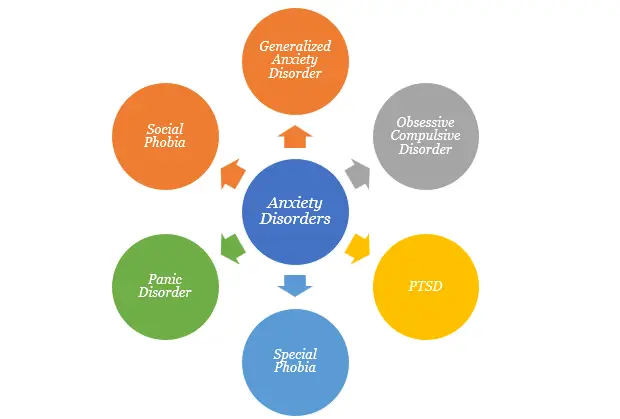
Anxiety has become an increasingly prevalent companion for most people these days due to the hustle & bustle of contemporary era. Anxiety can be triggered by various factors in our daily life. The necessities of modern life, advanced technology, social connectivity and expectations all contribute to the anxiety. According to a survey, anxiety disorders grew from approximately 298 million to 374 million, which is about a 25% increase after COVID Pandemic.
What is Anxiety?
Anxiety is an emotion of fear, awkwardness and distress. This emotion can cause sudden excessive sweating, fast heartbeat, feeling of restlessness and tension. Mild levels of anxiety can prove to be beneficial in some cases as it can boost our energy levels. Anxiety refers to the anticipation of the future concern and is more related with the muscular stiffness and avoidance behaviour. But when anxiety turns into panic attack, it can interfere with the daily routine and can be difficult to handle.
What are the symptoms of Anxiety?
Anxiety can occur anytime depending upon the situations or circumstances. In case of fear, worry for a period of time, one must consult mental healthcare professional to seek medical advice. The most common symptoms of anxiety are;
- Heavy Breathing
- Augmented Heart Rate
- Constriction Sensation in Chest
- Restlessness
- Compulsive Behaviour
- Confusion
- Negative Thoughts
- Muscular Stiffness
- Tremors & Palpitations
- Feeling Tired
What are the different types of Anxiety Disorders?

Anxiety can affect people in different ways and can get worse over the time. The cause of anxiety is not known but there are few factors such as genetics, brain biology & chemistry, stress and environmental factors, play a significant role in the occurrence of anxiety. The different types of anxiety disorders are;
- Generalized Anxiety Disorder: GAD or Generalized Anxiety Disorder includes persistent & extreme worry which interrupts your daily activities.
- Obsessive Compulsive Disorder: Those suffering from OCD, have continuous thoughts and worries that trigger anxiety. They relieve this anxiety by accomplishing few actions repeatedly like washing hands again and again, checking doors for safety etc.
- Panic Disorder: Short or abrupt attacks of strong feeling of horror and anxiety depicts the panic order. These symptoms lead to trembling, confusion, vertigo, sickness and difficulty in breathing. The intensity of panic attacks can escalate quickly after any terrifying experiences or prolonged anxiety but can occur without trigger too.
- Social Phobia: People who have social phobia have a strong fear that anything they will do or say will cause disgrace and humiliation. These people feel hard to start even a basic conversation with anyone.
- Post Traumatic Stress Disorder (PTSD): If anyone has witnessed any traumatic event, accident or any assault can cause PTSD. These people will feel difficult to sleep, relax as they will get constant flashbacks of that event.
- Special Phobia: Special phobia or Social Phobia are unproven fear and people who are suffering with any of these special phobias to avoid situation that can trigger their anxiety like flying in planes, too much crowd, insects or tall buildings.
What are the causes of Anxiety?
The exact cause of anxiety disorder is complicated. Some anxiety disorders might occur at once while some may lead to others, and few might not lead to an anxiety disorder unless another is present. The possible causes of anxiety may include:
- Environmental stressors like family stress or any other relationship issues.
- Genetical Disorders.
- Medical factors, such as after medication or treatment effect or any disease.
- Substance withdrawal.
What are treatment options for Anxiety Disorders?
Usually, there are three main treatment options available to treat anxiety such as
- Psychotherapy,
- Behavioural Therapy or
- Medications.
But sometimes, there are other few underlying health conditions which need treatment prior to the treatment of anxiety.
- Self-Treatment: Self treatment is best for those people who are suffering from short term anxiety disorders. They can treat anxiety symptoms at home with the help or guidance of family members. This can include several exercises such as physical exercises, relaxation techniques, stress management etc.
- Counselling/Therapies: There are few therapies such as CBT or Cognitive Behavioural Therapy, Psychotherapy or combination of therapies to change the harmful thoughts or toxic behaviour in people.
- Medications: There are several medications which are used to treat symptoms of anxiety disorders such as antidepressants, tri-cyclic antidepressants and benzodiazepines. Always consult your physicians or doctor before taking any medicine.

 Universal - go to homepage
Universal - go to homepage

